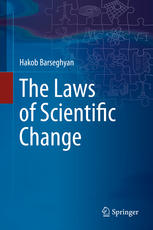

Most ebook files are in PDF format, so you can easily read them using various software such as Foxit Reader or directly on the Google Chrome browser.
Some ebook files are released by publishers in other formats such as .awz, .mobi, .epub, .fb2, etc. You may need to install specific software to read these formats on mobile/PC, such as Calibre.
Please read the tutorial at this link: https://ebookbell.com/faq
We offer FREE conversion to the popular formats you request; however, this may take some time. Therefore, right after payment, please email us, and we will try to provide the service as quickly as possible.
For some exceptional file formats or broken links (if any), please refrain from opening any disputes. Instead, email us first, and we will try to assist within a maximum of 6 hours.
EbookBell Team

4.3
78 reviewsThis book systematically creates a general descriptive theory of scientific change that explains the mechanics of changes in both scientific theories and the methods of their assessment. It was once believed that, while scientific theories change through time, their change itself is governed by a fixed method of science. Nowadays we know that there is no such thing as an unchangeable method of science; the criteria employed by scientists in theory evaluation also change through time. But if that is so, how and why do theories and methods change? Are there any general laws that govern this process, or is the choice of theories and methods completely arbitrary and random?
Contrary to the widespread opinion, the book argues that scientific change is indeed a law-governed process and that there can be a general descriptive theory of scientific change. It does so by first presenting meta-theoretical issues, divided into chapters on the scope, possibility and assessment of theory of scientific change. It then builds a theory about the general laws that govern the process of scientific change, and goes into detail about the axioms and theorems of the theory.